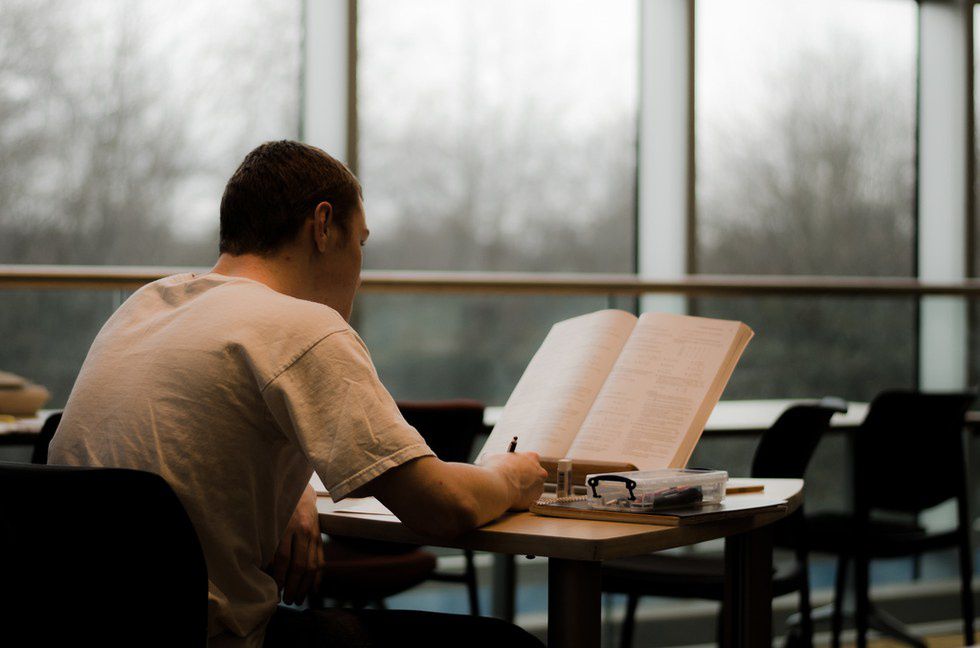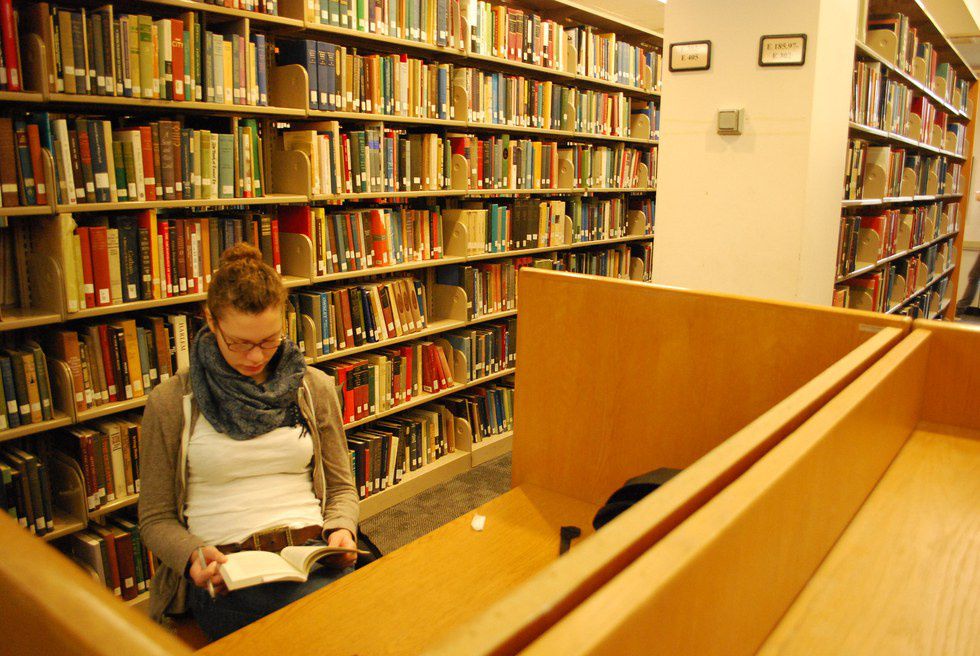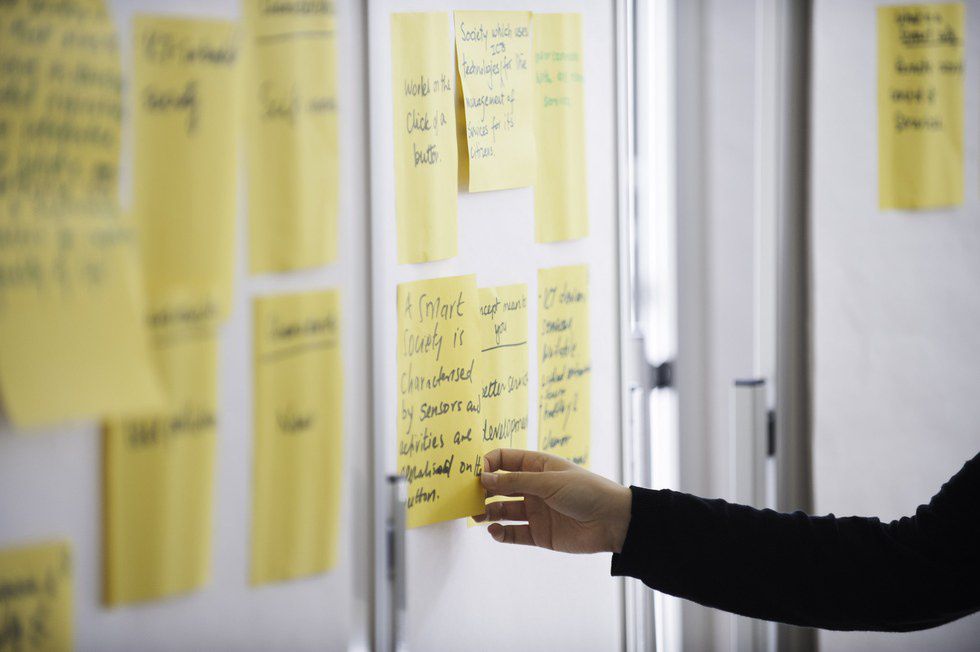I don’t know about you, but here at UB, midterms are coming. There is a magical phenomenon around midterms (and finals). Everyone is frantically preparing, the library is suddenly filled to the brim, the coffee line is longer than usual, and suddenly all your classmates are your friends. We all get caught up in this craziness and often times many of us are overwhelmed with so much to prepare for. To prevent drowning in the stress that midterms usually cause, here are some tips:
1. Start studying ahead of time
There is something about studying that turns students away. Just the word makes you want to cringe sometimes. But for midterms, studying is a must. The problem is that most people aren’t studying until just before the test. Let’s get one thing straight: Cramming is NOT studying. When you cram, you are forcing your brain to occupy a certain amount of information, then you spew it out all over the test and you forget everything afterward. This may work in some cases, but it can also backfire. You can forget everything the moment the test is handed to you, because your brain does not retain as much information when you cram as opposed to when you study. And don’t forget this is college: most of your classes should be detrimental to your future career. You do not want to just cram that information for a test. Instead, you want to retain information so you can apply it in your life someday.
2. Study guides are your best friend
I cannot express how helpful study guides are! If your professor makes one, it’s even better. Do not waste that resource. If you are blessed with a study guide from your professor, fill it out well before the test. It’s not only a guide to your test, but filling it out is studying on its own! If your professor does not provide a study guide, make your own. Your professors will usually have a midterm review beforehand. If they don’t, they will at least let you know where to focus your studying on. Take note of what they mention and make a guide out of that. I don’t think I would have done so well on a number of my tests had it not been for study guides.
3. Find your study place
Everyone has their own needs when it comes to their study environment. Some people needs absolute quiet while others need background noise. That’s okay. Make sure you take time to find your ideal spot. Here at UB, there are numerous study spots: lounges, empty classrooms, small dining areas, picnic tables, common areas, you name it. The library has quiet floors and private rooms too. There is basically a place for every kind of person. I know personally, I cannot study in my room without getting distracted, so I’m usually in the library, but I stay on the first floor because I like background noise and the chatter and noise from the café are calming to me.
4. Make a study group
This may not be for everyone. Sometimes studying is a lone wolf habit, and that’s okay. But sometimes, it’s better to study with at least one or two more people from the same class, especially if that class is challenging for you. You never know how someone else’s notes can make a difference for you or how someone’s point of view on a topic can better your own understanding of it.
Keep in mind that a study group does not necessarily mean studying for the same test. I often study with people who have completely different majors. No, I can’t necessarily ask them for help on a certain topic, but I can get their point of view if necessary. Sometimes just being around people who are studying, motivates you to do it too. It works the same if your midterm happens to be a ten-page paper; if the people around you are doing work, too it motivates you.
5. Take breaks
If you’re like me, sometimes you just get in the zone and you would prefer to stay there until you’re done. This has proven to be a less effective study method. Instead, study for blocks of time and take breaks in between. A good system would be to study for an hour, take a short break, go back to study for another hour, and so on. It’s also good to get away from the books completely for a bit. Do something you enjoy whether it is drawing, gaming, reading, whatever it may be. Your school may also have events going on specifically for Midterms Week such as de-stress events and other kinds of activities. The week before my Midterms Week is also Homecoming Week. I know I’ll be going to events throughout the week to destress from studying. A pep rally is a great way to wake yourself up from reading your textbook.
6. Talk to your professors
If there’s something you really don’t understand while you study, ask your professor. Send them an email, hang out after class to talk to them, go to their office hours, they are usually more than willing to help. Professors are particularly glad to help students who come to class regularly, participate or frequently attend office hours as well. So if you don’t do those things, I suggest you do. It makes a world of difference sometimes. You may even get some extra hints as to what will be on the test.
7. Don't forget about your other classesSometimes we are so caught up in one class because it's more challenging or interesting, and we neglect the others. It's important to allot a good amount of time for each course you're studying for. Some may require a little more time than others, likewise some may require a little less study time than others. Remember, it's all about balance, Just make sure you give yourself ample time to study for each course.
8. Time Management
Planning when, where and what for your studying makes things so much easier. It creates a center for you. I always take time to sit and plan when I will study, how long and what I am studying. It’s especially helpful if you have multiple exams on the same day and you really need to split your study time wisely. But do not just make a plan, stick to it. If you need alarms or notifications to keep you on track then do so. If you need someone to hold you accountable, do that too. It’s an effective way to not only make sure you study, but that you do it well.
Pro-tip: if you like to study with other people, try reserving a room in your school library. UB has several rooms that a minimum of 3 students can reserve for 2 hours at time and you can renew your reservation for another 2 hours (1 hour during midterms and finals) within the last 10-15 minutes of the reservation! I always book a room for the entirety of Midterms Week, and it makes a huge difference!
9. Take care of your body
In all the craze of midterms, many students skip meals, eat junk, and don’t sleep much. Midterms is the time where you should be the MOST balanced. Make sure you eat regularly and watch what you eat. What you put into your body can actually affect your ability to study and retain information. Nuts and berries are good examples of ideal study snacks to help you focus. Getting a good amount of sleep is important too. When your body is well rested, you remember what you studied better when the test comes around.
10. Your grades do NOT define you!
Yes, good grades are great and very important if you are on academic scholarships. But don’t kill yourself over your grades. If you’re studying, putting in the effort and truly doing your best, it’s okay if you don’t get an A. Don’t let your grades define who you are. Too many students get lost in the idea of getting good grades in order to be successful and too many students lose themselves when they do not get the results they expected. Do not sell yourself short if you don’t end up with the grades you hoped for. You are of value no matter what that test score turns out to be.
Good luck to everyone taking midterms! Remember: study, eat, sleep!




























